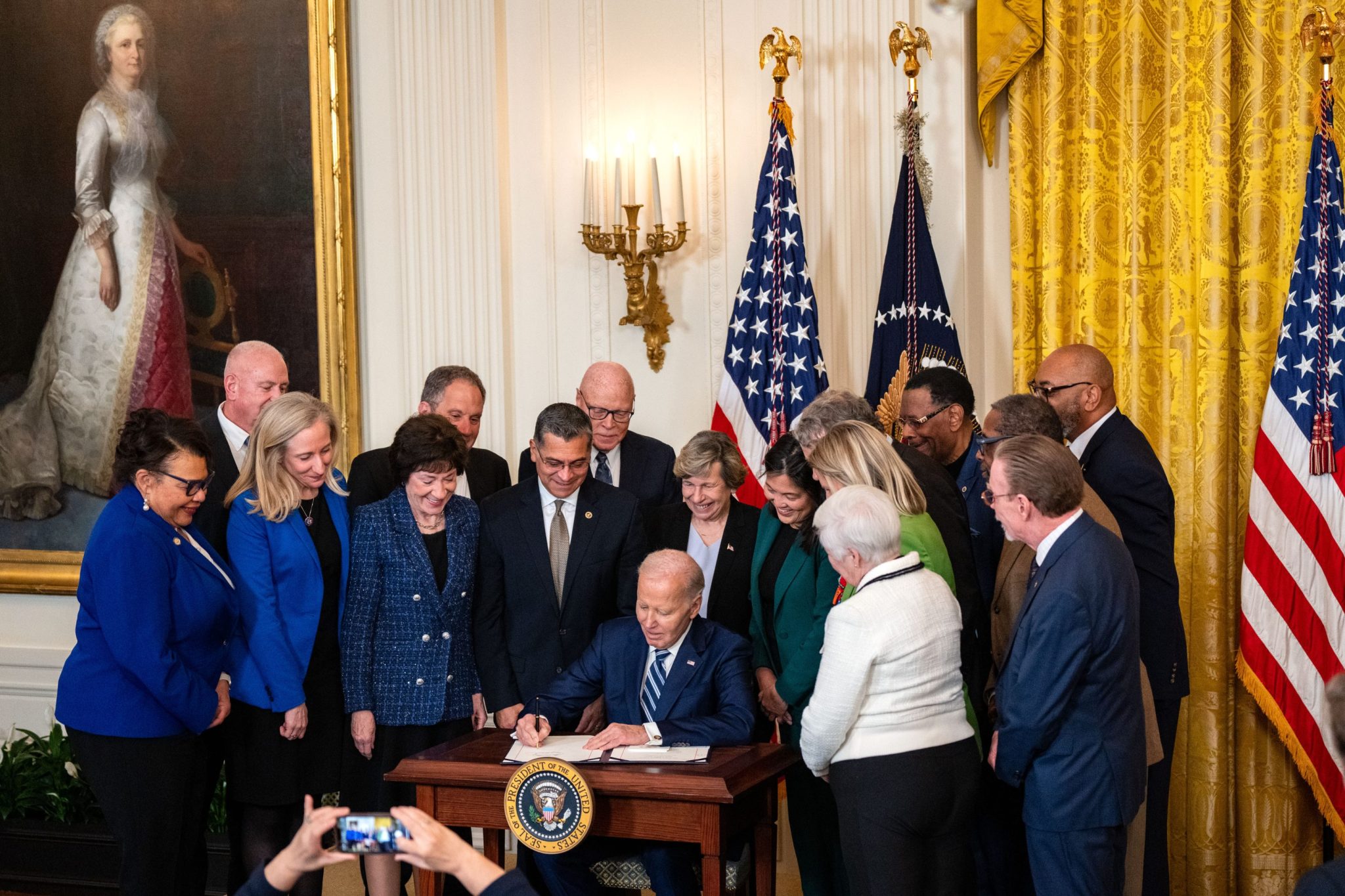
Nearly 3 million current and former public sector workers are set to receive higher Social Security payments after President Joe Biden signed the Social Security Fairness Act into law on Sunday.
In what the White House says is the first such expansion in 20 years, the bipartisan law eliminates two provisions that reduced monthly benefits for some retirees with other pension income. The Congressional Budget Office (CBO) estimates some public employees could see their benefits increase by an average of $360 per month, while some spouses could see an average monthly increase of $700. Meanwhile, those who have lost their partners could see a $1,190 increase. The benefits will increase along with Social Security's annual cost-of-living adjustment (COLA).
Additionally, millions of Americans will receive a one-time payment worth thousands of dollars for the benefits they should have received in 2024, Biden said.
"The bill I’m signing today is about a simple proposition: Americans who have worked hard all their lives to earn an honest living should be able to retire with economic security and dignity," Biden said at the bill-signing ceremony Sunday. "The law that existed denied millions of Americans access to the full Social Security benefits they earned by thousands of dollars a year."
The eliminated provisions include the Windfall Elimination Provision (WEP) and the Government Pension Offset (GPO), which were enacted over 40 years ago. The WEP reduced benefits for public employees who received pensions not covered by Social Security payroll taxes, while the GPO cut Social Security spousal or widow benefits if the job was not covered by Social Security.
The two provisions were meant to prevent Social Security from "overpaying" certain beneficiaries, including public school teachers, firefighters, police officers, postal workers, and others, who also collect state and local pensions.
The Social Security Administration (SSA) says it is "evaluating how to implement the Act," and that more information will be provided "as soon as available." SSA advises that workers who think they qualify for the enhanced benefits "do not need to take any action," except verifying their mailing address and direct deposit information with the administration. This can be done online.
The new law comes as Social Security recipients are set to see a 2.5% COLA in 2025, which many say is not adequate to keep up with inflation. The CBO estimates it will cost $196 billion over the next decade.
Opponents of the new law say it pushes the U.S. closer to Social Security insolvency. A May 2024 report from the Social Security trustees finds the program's trust fund will be exhausted in November of 2033; the CBO finds the new law will deplete it six months earlier than that if no other action is taken to shore up the fund.







